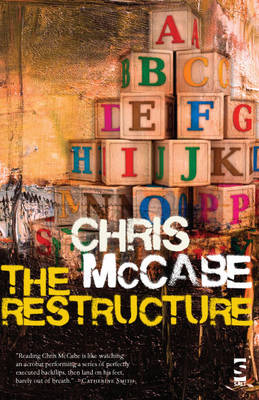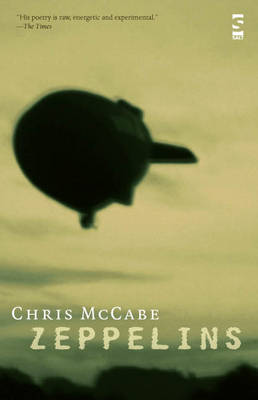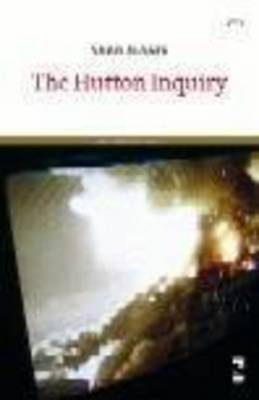Salt Modern Poets
3 total works
THE RESTRUCTURE tells the story, through a series of poems, of the circumstances leading to the conception of a boy and his delivery into a difficult world. Born with a condition that requires long stretches in hospital the author attempts to view the world through the senses of the boy who is yet to learn language. This play of words presents the challenges of the world in a new light. The backdrop of the book is social unrest, but the author and boy – who has 40 different pseudonyms – push back against the monotone order of THE RESTRUCTURE (the all-controlling voice that appears throughout as a public service announcement) through the surreal inventions of words and games. This is a gripping book of contrasts, conjuring a life of extreme polarities that is always striving for a resolution, towards a restructured world.
With grit and humour Zeppelins takes on the speed and surrealist chaos of the metropolis at the beginning of the 21st century. On the look-out for abandoned scraps to make sense of the sprawling whole – senseless advertisements, discarded notes, overheard conversations – McCabe hawks the fringes and thoroughfares for his sources. He discovers an underground of the cynical and power-hungry, shamelessly clashing registers with experiences of redemptive warmth and love.
Urban, inquisitive and with a restless interest in the now, McCabe writes about Pete Doherty's arrests and the Essex reaction to England's exit from the World Cup in 2006. Playful and serious, with an eye for the strange and comedic, this is a book about what it means to be alive in a city as we head towards the second decade of the new century.
The political events of Summer 2003 is the setting for the main sequence of poems in “The Hutton Inquiry.” The poems move quickly, as scraps of information, piecing together the picture of a summer gone wrong. The emphasis is on speed, association, guesswork – creating a mosaic from the fragmentation of political divide and rule.
The story of the nascent war in Iraq unfolds in “Progress Poems,” a sequence that began as an indictment of false notions of progress, and turned into a melting-pot for harboured cynicisms: from Rupert Murdoch to Tony Blair. Jumbled in numbers from 1-2000, the poems move with the synchronicity and randomness of the internet.
The book opens with “A Taste of Verdigris”, a series of mostly present-tense, lived-in poems. These poems differ from so much contemporary poetry in that they account for the fabric of daily existence before it reaches the point of retelling through the techniques of story. They press with the immediacy of the moment.
“The Smog: London Poems” is a sequence for anyone who has ever experienced the sensation of the outsider, newly arrived in London. “The London Migration Sequence” accounts for the London rookie’s attempts to make ends meet, and to begin to make sense of the metropolis. The final poems in the book are a series of love poems, lighter in touch, including a nod to the French Surrealists. These poems are the secure place from which the books broader experiments can take flight.


